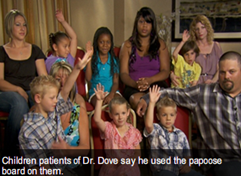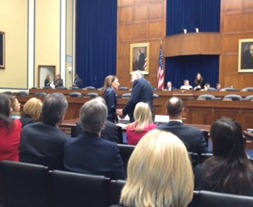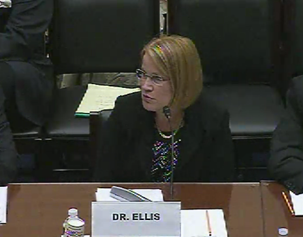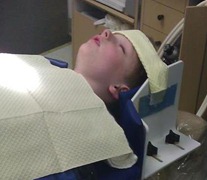Well, it appears Wednesday-April 11, 2012-was an eventful day in Texas, at least when it comes to Corporate Dentistry practices that has invaded the state. The Texas state legislature is finally asking question why these places are in business and who is in charge of letting them do as much damage to the children as Mad Cow does to cattle.
The Texas State Board of Dental Examiners says it’s not them, just like the Georgia Dental Board. Below there are three articles from around the web on the happenings yesterday.
I just have so much to say about this, but I don’t have time today. 
Published: 9:19 p.m. Wednesday, April 11, 2012
Patients, dentists and lawyers told a Texas legislative committee Wednesday that the state agency that regulates dentists does a weak job of protecting the public from bad care.
But board officials said the Legislature hasn't provided enough money to better regulate 60,000 licensees in Texas.
The problems go beyond that, said members of Texans for Dental Reform, a Houston-based group that monitors the Texas State Board of Dental Examiners and has long sought to air its grievances before the House Public Health Committee.
The group, and other members of the public, came to the committee Wednesday with recommendations and complaints. Among them: The board protects dentists and lacks a standardized way of disciplining them; it defines standards of care on a case-by-case basis, rather than following established care guidelines when investigating dentists; and it allows dentists who have been in serious trouble to get a new license number, making it exceedingly difficult for the public to connect the dots to previous disciplinary actions.
They also said that board members should never act as expert witnesses in lawsuits involving dentists and asked for action against unregulated dental clinics that "overtreat" children to take advantage of increased payments from Medicaid, the state-federal program for the poor.
"Over the past three years, we have found the board resistant, abusive and arrogant towards the public and unwilling to make the changes needed to protect public safety and health," said Gwen Mitchell, president of Texans for Dental Reform.
Dr. Tammy Gough of McKinney, presiding officer of the 15-member dental board since December 2010, said the board has strengthened various rules and is developing a standard way to review complaints and discipline violators. She said she has no problems with a law banning board members from acting as expert witnesses because none do.
But the volunteer board is hamstrung in its work by too little staff, not enough money and a lack of authority over corporate-owned dental clinics accused of exploiting Medicaid, said Glenn Parker, acting executive director of the agency.
Medicaid fraud complaints are turned over to the attorney general, inspector general and law enforcement officials, Parker said.
"We understand there is room for improvement," said Gough, who won praise from various members of the public for her openness to change.
The board could do better if the Legislature allowed it to keep more of the $9.6 million it collects in license fees and other work, Parker said. Instead, its current budget is just $2.7 million, and although it is authorized to employ 36 people, it employs just 29 because it can't afford more, he said.
Board officials also said some changes Texans for Dental Reform and others are pressing for would require legislation.
Houston lawyer Jim Moriarty disagreed that the board lacks authority to go after the corporate-owned clinics that are abusing Medicaid. He has filed suits in New York and Colorado against a network of clinics with operations in Texas and said the board should discipline the dentists in those practices, he said.
Lawyer Charlie Gustin of Houston has sued the Smile Center in San Antonio and told the committee of one case involving a 5-year-old boy who received 20 "baby" root canals and 20 steel crowns in 48 minutes. The boy left the clinic with cement in his mouth, and 14 of the crowns have since popped off, Gustin said.
Smile Center spokeswoman Debbie Clarke said the owner of the practice was unavailable to comment Wednesday "due to his professional responsibilities."
At the hearing, committee Chairwoman Lois Kolkhorst, R-Brenham, said that she wasn't interested in revisiting past problems but that the panel recognizes that the board needs lawmakers' help to get the tools it needs to do a better job.
Dentist Douglas Terry, a Houston-area member of the reform group, said he was encouraged.
"Things are going to change," he said.
Contact Mary Ann Roser at 445-3619
by Becca Aaronson April 12, 2012 Texas toddlers being held in restraints as dentists at corporate-run clinics performed unnecessary root canals were among the dental horror stories told Wednesday at a House Public Health Committee hearing at the state Capitol.
The Texas State Board of Dental Examiners, which regulates dental licensing in Texas, was the subject of criticism by members of Texans for Dental Reform and unaffiliated residents, who called for legislative reform while levying accusations of ineptitude, a pattern of withholding or obscuring negative information about dentists, and failure to act against corporate-run dental clinics committing Medicaid fraud and harming patients.
But others came to the board’s defense, saying that the new leadership is trying to fix mistakes from the past and that the board lacks the resources to do its job well.
“We have an underfunded and understaffed state board that is not able to accomplish all that we’d like them to accomplish,” said Richard Black, the legislative chairman for the Texas Dental Association and an El Paso dentist. Although it is taking time, the leadership of the board has made “substantial progress,” he said.
Both Black and members of the dental board expressed concerns about the recent outcrop of corporate-run dental clinics — and the board’s limited ability to protect the public when unlicensed operators at such clinics interfere with patients’ treatment.
The Tribune thanks our Supporting Sponsors
The clinics in question often serve only Medicaid patients and pay one dentist to act as a prop by claiming ownership. The real owners of the clinics — usually private equity firms — are in the dental business for profit, and encourage overutilization of Medicaid services by dictating a “one-size-fits-all treatment plan” or setting quotas for the number of procedures that dentists should perform, said Black.
Dentists drilling for Medicaid gold is a national issue, as one Washington TV station documented, and more corporate-run dental clinics popped up in Texas after lawmakers raised reimbursement rates for dental procedures in 2009 to motivate dentists to accept Medicaid patients. Joyce Sparks, general counsel to the dental board, said the board has also seen an increase in complaints of dentists violating standards of care since then, which could be linked to the rise in reimbursement rates.
Jim Moriarty, a Houston lawyer, detailed reports of torturous procedures at corporate-run clinics, in which children as young as 2 are immobilized, sometimes with a restraining device called a papoose, while the dentist inserts multiple stainless steel caps or performs root canals rapidly.
“They won’t let the parents be present because the parents would be tempted in Texas to pistol-whip them if they knew what they were going to do,” Moriarty said. He’s currently suing one company that operates six dental clinics under various names in Texas and said the dentist who claims to operate those clinics — but actually works and treats patients in Oklahoma — bills Texas $12 million a year to treat Medicaid patients.
“We want to be part of the solution, but right now we have no tools with which to combat this,” said Glenn Parker, the dental board’s acting executive director. The board only has the authority to license and sanction individual practitioners, which inhibits its ability to monitor or regulate clinics owned by private equity firms or corporations. The only recourse for the dental board is to notify the Office of the Inspector General and other state and law enforcement agencies when they’ve received an accusation of Medicaid fraud.
Unless someone comes forward “willing to testify they’re a cover for the private equity fund, so sanction me because I’ve been defrauding you,” the board can’t do anything, Sparks said. “It just doesn’t happen.”
The board has identified the corporate practice of dentistry as an issue for lawmakers to address in the next legislative session, Parker said, adding that the board wants to get legal authority to regulate those clinics. The board also wants adequate funding to resolve the complaints it receives.
Unlike the Texas Medical Board, which pays consultants and doctors to investigate allegations of medical misconduct, the dental board relies on volunteers to investigate complaints. There are usually 15 to 20 active consultants — dentists who apply to the board, undergo background checks and training, and then receive approval from at least two board members — to review complaints about standard of care.
Parker estimates the dental board receives 500 to 600 standard-of-care complaints a year. At least two of the volunteer dentists must review a complaint and agree on whether a standard of care violation occurred before the case is closed.
Board members said they've opened communication with Texans for Dental Reform to address their complaints, but ultimately, the agency needs more investigators and staff. Parker admitted the volunteers often "cherry pick" the easier complaints. “When you have staff turning over, some people do what’s easiest to do, not what’s best to do."
The Dallas Morning News
SOMMER INGRAM
Austin Bureau
singram@dallasnews.com
Published: 11 April 2012 11:19 PM
AUSTIN — The agency that polices Texas dentists told lawmakers Wednesday that it doesn’t have enough resources or legal authority to crack down on careless and abusive dentists.
An advocacy group led the charge against the Texas State Board of Dental Examiners, telling a legislative panel that the regulatory board doesn’t do enough to discipline bad dentists or alert the public which dentists have been sanctioned.
“We’ve found [the] board to be resistant, abusive, arrogant toward the public and unwilling to make changes needed to protect public safety and health,” said Gwen
Mitchell, president of Houston-based Texans for Dental Reform. “The consensus is that it only has one agenda, and that is to protect its own.”
The board, which oversees 15,000 dentists, 32,000 dental assistants and 12,000 hygienists, has long been dogged by complaints of shoddy oversight that leaves patients suffering and dentists unaccountable.
In response at the House Public Health Committee hearing, board leaders said the agency needs more funding and staff to keep up with the demands of approving licenses and reviewing the 500 to 600 cases it gets each year.
They can range from pulling the wrong teeth to injuring a patient, from abusing drugs to sexually assaulting a patient.
Mitchell’s group and others want the board to disclose all complaints filed against dentists and to get rid of those providing dental care without a license.
But board officials said the Legislature wrote the law so that it can’t disclose complaints lodged against dentists if they are dismissed.
They said they’ve been limited in enforcement tools and largely depend on the attorney general’s or inspector general’s office to pursue and remedy cases of fraud, especially in Medicaid.
“It’s not the charge of the board itself to be the lead agency in investigating Medicaid fraud,” said Glenn Parker, the acting executive director. He said that if disciplinary action is taken by the attorney general’s or inspector general’s office, the board takes action.
He said the dental board collects $9 million annually in fees, but the Legislature allots it about $2 million for its total budget. “We could use a lot more funding,” he said, although he did not give a specific figure.
Licensing actions The board’s sanctioning method is to revoke or suspend dentist licenses, so board leaders say that leaves them without a way to punish those practicing without a license to begin with.
Dr. Tamela Gough, presiding officer of the board, said the board regulates individual practitioners but has no authority over clinics or owners of clinics. “We regulate the licensed dentist who is performing dentistry in these clinics — they’re not running willy-nilly as far as patient care,” Gough said. “But in order for us to regulate the actual corporate entity, it would require legislation.”
Jim Moriarty, a Houston lawyer who prosecutes Medicaid fraud cases, argued that the board is taking the easy way out by saying it doesn’t have the power to punish private entities and those practicing without a license.
“I’m appalled when I hear the board say they have no control over these people. Texas has some of the best regulations in the country, but the law is just not being enforced,” Moriarty said. “The board sits like an ostrich with its head in the sand saying, ‘If they don’t have a license, we can’t do anything.’”
Charlie Gustin, a San Antonio lawyer who works with children on Medicaid, told lawmakers about a boy he represented who went in for dental work and ended up worse off than he started.
He was given double the amount of local anesthetic required for a child his body weight and received 20 baby root canals and 20 stainless steel crowns in less than
an hour.
When he went to another dentist for remedial work, 14 of the 20 crowns popped out and the dentist noticed excess cement left in his mouth that can cause infection.
The dentist filed a complaint with the board and found that the first dentist’s license had been suspended in New York before he came to Texas.
“But the state board online lists no disciplinary actions,” Gustin said. “We need more disclosure to the public when you have a dentist that’s been kicked out of another state. But according to our state board of dental examiners, he’s clean. And that’s a problem.”
More fraud complaints
Joy Sparks, the board’s general counsel, said that over the last two years, Medicaid fraud complaints have increased, probably because reimbursement rates have gone up.
“The state increased the reimbursement rate to make it more lucrative for dentists to take Medicaid patients. … Once that occurred, there were those who took advantage of the system because it became more profitable to participate in Medicaid.”The House panel said it would consider efforts in the next legislative session to overhaul the dental regulations.


 For some kids a trip to the dentist can be a traumatic experience. But just imagine what it might be like strapped into a cocoon-like restraining device called a papoose board that is sometimes used to immobilize children at the dentist's office.
For some kids a trip to the dentist can be a traumatic experience. But just imagine what it might be like strapped into a cocoon-like restraining device called a papoose board that is sometimes used to immobilize children at the dentist's office. Dove.
Dove. Hearings in Washington today of Medicaid fraud and it includes managed care and dental fraud testimony!
Hearings in Washington today of Medicaid fraud and it includes managed care and dental fraud testimony! Maybe they will ask Attorney General Holder.
Maybe they will ask Attorney General Holder.